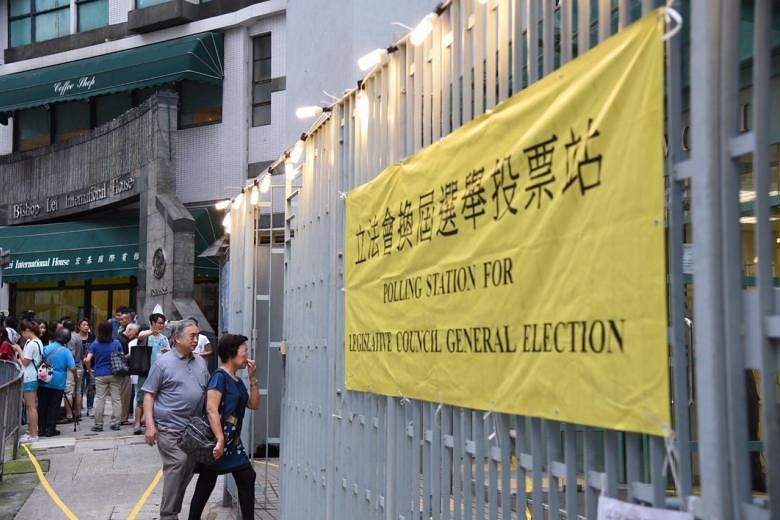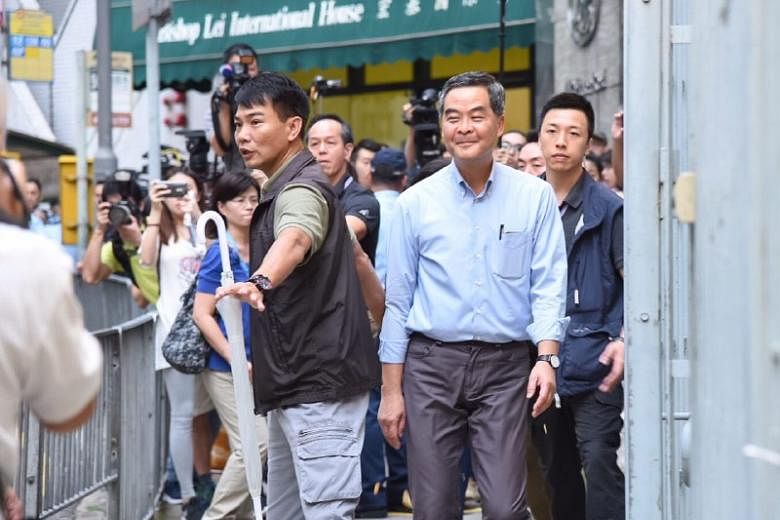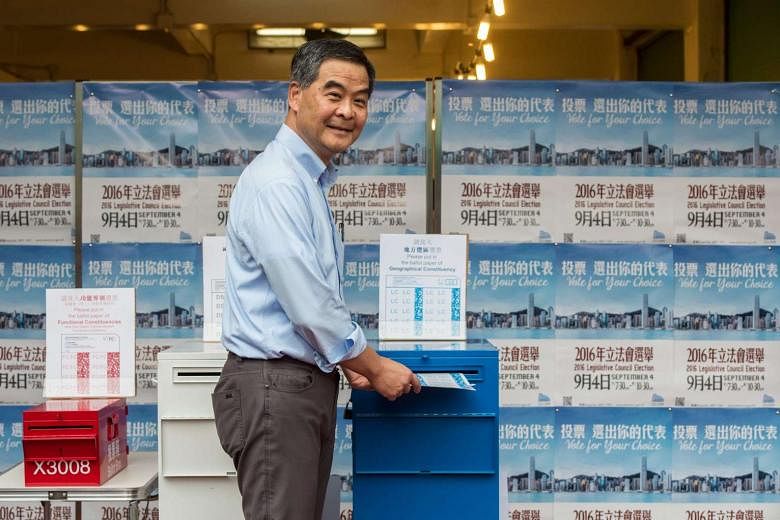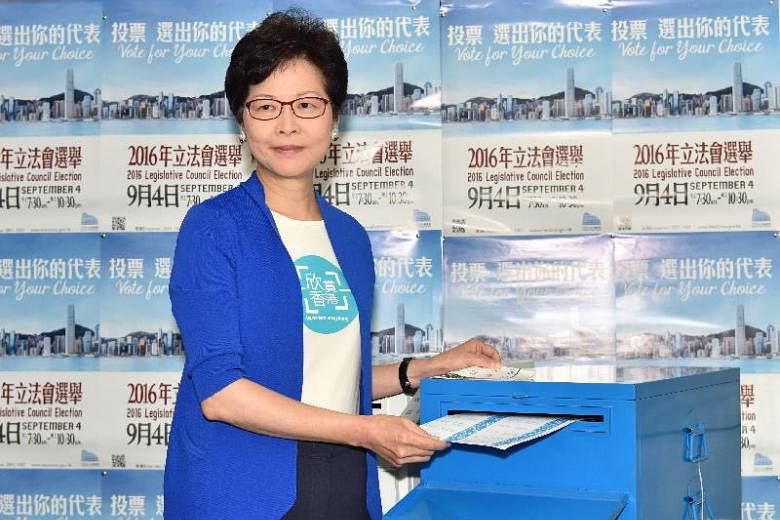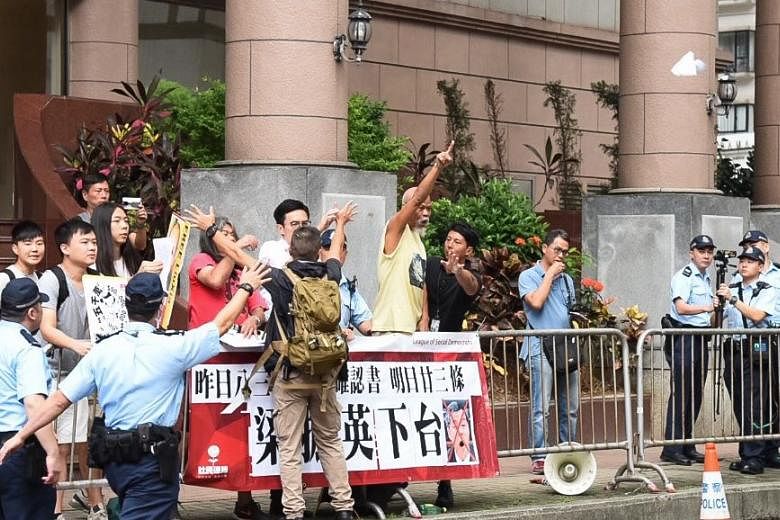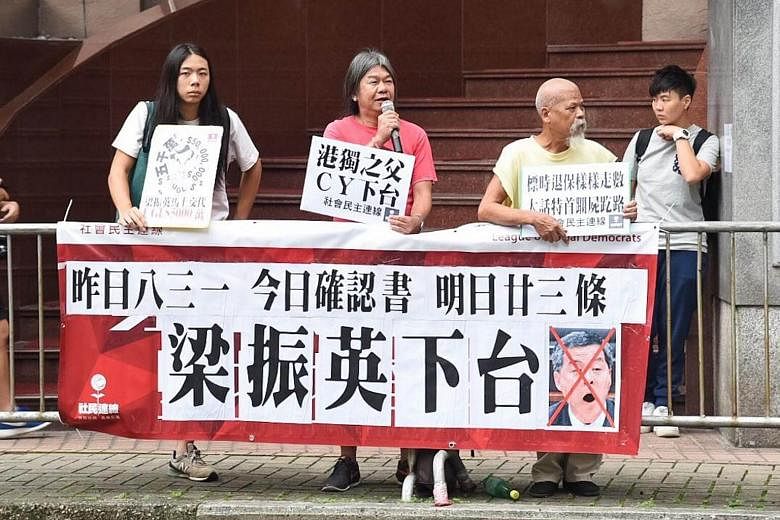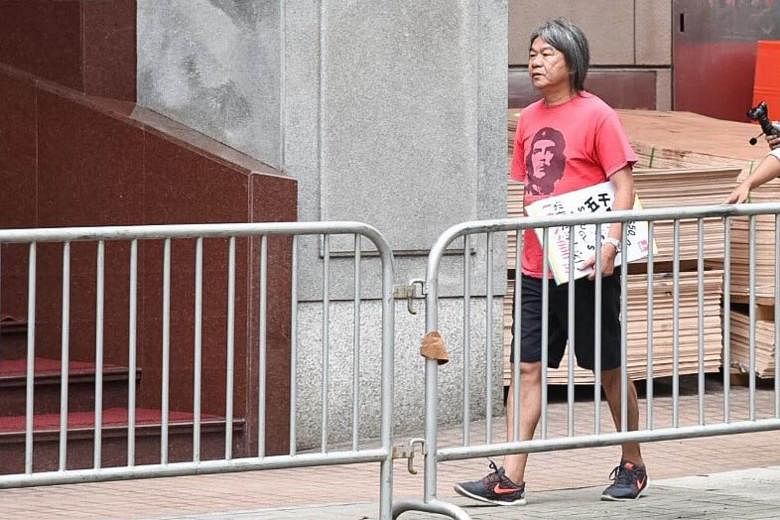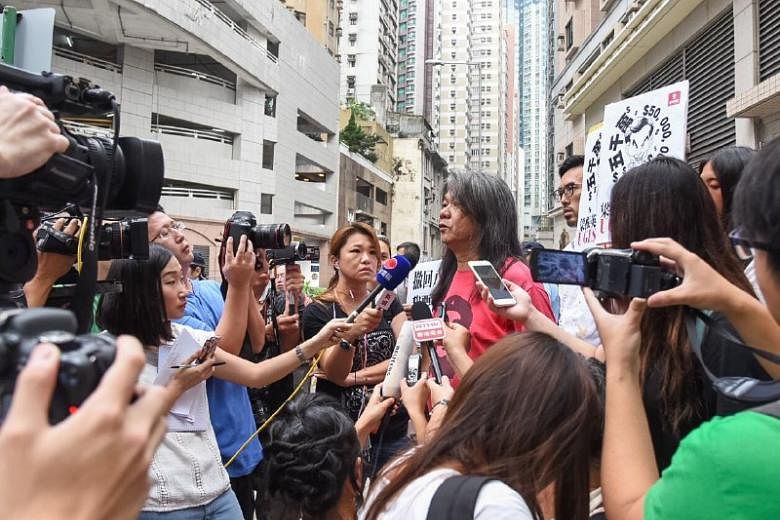HONG KONG - Some 3.7 million Hong Kongers are heading to the polls on Sunday (Sept 4) to elect lawmakers in the Parliament or Legislative Council (Legco) in an election seen as a test of the appeal of a new group of young anti-China activists.
It is the first major electoral vote since the massive student-led protests two years ago demanding greater democracy for Hong Kong. As of 9.30am on Sunday morning, more than 140,000 out of Hong Kong's 3.7 million eligible voters had cast their votes in the five geographical constituencies, according to the city's Registration and Electoral Office.
Chief Executive Leung Chun Ying, who arrived at a polling station at the mid-levels at 8.10am, was jeered by radical pan-democrats Leung Kwok Hung and Avery Ng, who were standing across the road. Mr Ng, who is the chairman of pro-democracy group the League of Social Democrats, had to be restrained after he threw a tuna sandwich towards Mr Leung.
According to Mr Ng, he picked the smelly snack as he wanted to let the Chief Executive know that there are many people in the city who cannot afford even a sandwich for breakfast.
Hong Kong Chief Secretary Carrie Lam, urged residents to cast their votes, after casting hers at the German Swiss International School Peak Campus on Sunday morning.
"Hong Kong is a city of diversity. Over the years, many people of different backgrounds, ethnicity and language have made Hong Kong their home... I urge all the roughly 3.78 million registered voters to come out to cast their vote.
"I can fully understand that over recent years you may be upset and disturbed by the increasing confrontation in the Legislative Council, and you may be disappointed by the fact that Hong Kong, the city we love, has not been making more progress... But it is exactly for this reason that I urge you to vote because indifference will not lead us anywhere. Your vote is a vote of confidence in Hong Kong."
Pan-democrat Leung Kwok Hung, who is running for a seat in New Territories East, was also waiting for Mr Leung near his polling station at Raimondi College. The radical activist told police officers that he was not canvassing for votes, but was there to call for Mr Leung to step down.
A housewife in her 60s, who wanted to be known only as Madam Fung, said she hopes the new legislature "will unite Hong Kongers so that Hong Kong people will not be so divided (like now)".
Asked for her views on Hong Kong's independence, she said: "Independence is a sentimental emotion and it's unrealistic. We all know this is not possible."
Describing the young localist candidates as "not very mature", Madam Fung expressed hopes that they would not get voted into the legislature. "The legislators have to work for Hong Kongers. They should be more rational and not so radical in their actions," she added.
Mr Joseph Wong Wing Ping, 68, the former Secretary for the Civil Service of the Hong Kong Government, told The Straits Times after casting his vote that he encouraged young people to run in the race, and hoped the current list of candidates would "keep tabs" on the government.
But he said he did not think independence was the way out.
Pro-Beijing politicians are seeking to win at least 47 of the 70 seats - a two-thirds majority - in order to break the one-third veto-wielding bloc held by pro-democrat parties.
The polls will close at 10.30pm local time on Sunday and results are expected on early Monday morning.
The Legco election comes two years after the 79-day Occupy Central protests that saw thousands of students camping out on the streets in the downtown Central district to agitate for greater democracy and autonomy. While the protesters failed in their bid, the movement spawned several new parties set up by young people who want greater autonomy and to preserve the city's culture and identity.
Known as localists, these newcomers are now challenging the traditional pan-democrats - themselves pro-democracy youth activists of the 1970s.
The localists offer an alternative option to Hong Kongers who are frustrated by the pan-democrats who have often stalled government legislation in the name of democracy. They are also likely to fragment the democratic camp, analysts have said.
The localists also pose a threat to pro-Beijing candidates. Analysts say the majority of Hong Kongers dislike the policies of Chief Executive Leung Chun Ying's administration. As a result, the middle class or those who have not made up their minds on whom to vote for could spurn the pro-Beijing camp and give their votes to the young candidates.
To counter this, pro-Beijing candidates have vowed to look into hot- button issues concerning young Hong Kongers such as better housing and employment policies. These were issues that had drawn young people to the Occupy movement.
